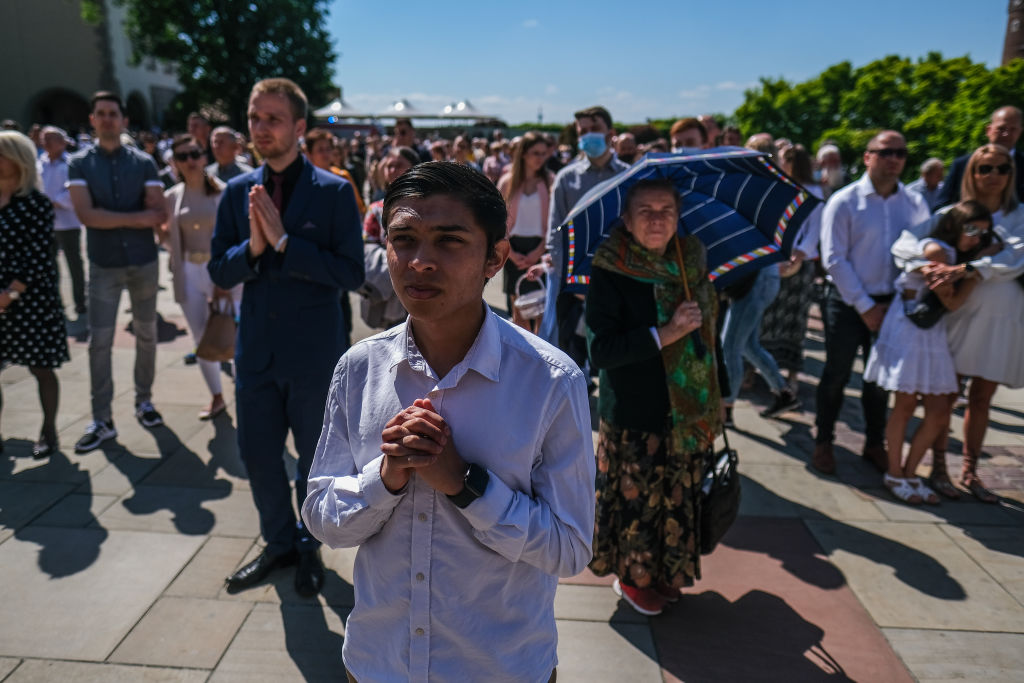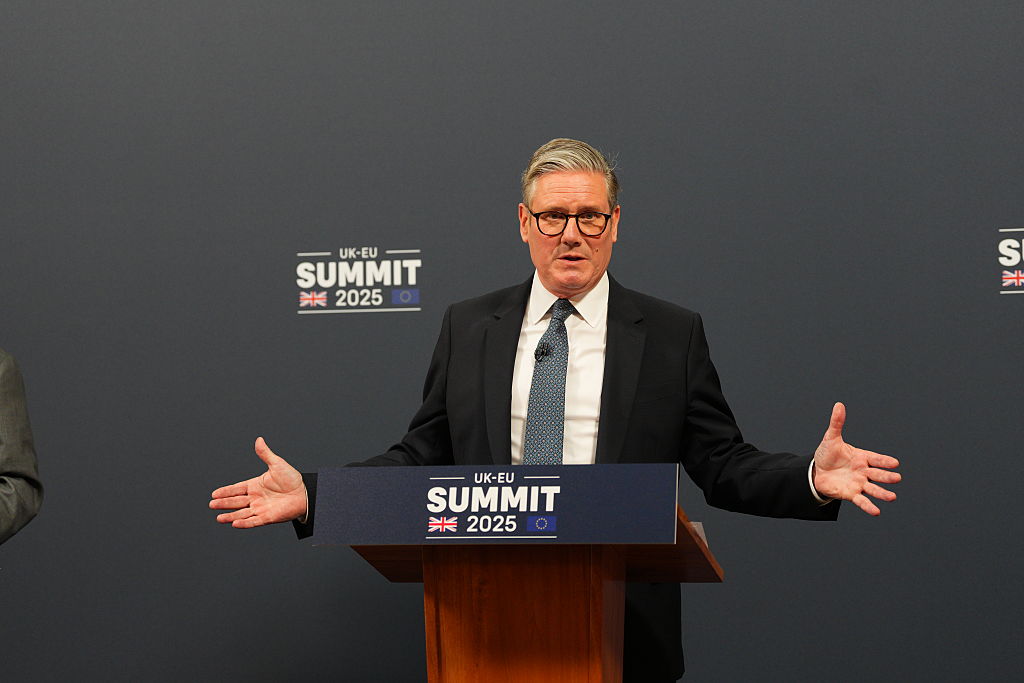Provisional results from the Portuguese 2025 snap election are out, with the centre-right Aliança Democrática coalition (European People’s Party) of Prime Minister Luís Montenegro leading with 89 Members of Parliament (MPs), far from the 116 needed to obtain a majority, with a surprising tie for second place between the Socialists (Socialists & Democrats) and CHEGA (Patriots for Europe) with 58 MPs each. The votes from the Portuguese living abroad, to be counted next week, will likely, based on previous election patterns, break the tie for second place and leave CHEGA with at least 60 MPs, while the Socialists may realistically aspire, at most, to 59 MPs.
In early April, shortly after Portuguese President Marcelo Rebelo de Sousa scheduled snap elections following the rejection of a motion of confidence in Prime Minister Montenegro, authorities released new immigration statistics, suggesting that the number of foreigners living in Portugal had quadrupled since 2017. In a short period, Portugal moved from one of the countries in the European Union with lowest numbers of immigrants directly to the group of countries where this percentage is highest. It’s history fast-forwarded.
Back in 2017, Portugal was lauded as an example of immunity to the ‘far-right’, with almost uncontested left-wing dominance in media and public discourse after a long period under a right-wing authoritarian government (1926-1974). In 2025, CHEGA, an unambiguously right-wing party formed in 2019 without any significant predecessors, will in all likelihood, lead the opposition, surprising pundits and pollsters, which were completely unable or unwilling to anticipate these results. Once again, history fast-forwarded.
Prime Minister Montenegro, elected just one year ago, had been ruling as a pragmatic, middle-of-the-road leader, trying to navigate his way with a minority government, depending on the Socialists to approve his 2025 budget and enforcing a mitigated cordon sanitaire against CHEGA, while also criticising the former Socialist government for its lax immigration policy, advocating instead for controlled immigration. This balance was upset by a perceived personal scandal concerning a consultancy company owned by the prime minister’s close family members, leading to the snap election, where the voters renewed confidence in his centre-right coalition, growing in votes and mandates, but remaining unable to form a majority without CHEGA or the Socialists.
The Socialists, with a strong third-way tradition since the early 1990s, turned Left, for pragmatic reasons, with António Costa (prime minister 2015-2024, President of the European Council since 2024); and navigated further to the Left when Pedro Nuno Santos, dubbed ‘the Young Turk’, beat former interior minister and more moderate (and Costa-aligned) José Luís Carneiro back in 2024. Unable to appeal to many of Costa’s voters, Santos led the Socialists to their worst showing in three decades. If they also lose their status as the main opposition party, this election could arguably represent the worst strategic outcome in the party’s history. To further aggravate the result, the left-wing Bloco de Esquerda and the Communists (The Left) also collapsed, with the surge of Livre (The Left) not compensating the left-wing losses.
The future of the Socialists does not look bright. Carneiro is expected to run again for the leadership, but, despite his moderate and credible profile, his tenure as interior minister (2022-2024) during the recent wave of what some classify as mass immigration seems to be a political liability that could easily be exploited by his opponents. He may face his former colleague, the discreet Mariana Vieira da Silva, Presidency Minister 2019-2024, suggesting a division of the Costa camp. Meanwhile, Alexandra Leitão, the obvious contender from the left-wing camp, has announced she is out of the race. Similarly to the outgoing Santos, Leitão would struggle to capture centrist voters, and she is also running a very difficult election for Mayor of Lisbon.
CHEGA’s success is an unlikely story. André Ventura, the party’s president, is a charismatic figure with political killer instinct. Before founding CHEGA, he was a football pundit and a minor political figure at PPD/PSD (European People’s Party and leading party of the Aliança Democrática coalition). In a country with no significant conservative nor traditionalist movements, and where the hierarchy of the Catholic Church, which holds a powerful societal influence, tends to generally adopt a ‘progressive’ stance and be conciliatory towards centrist politics, CHEGA’s surge is, in a way, unexpected.
Ventura has built a heterogeneous coalition of supporters, appealing to working-class people around topics such as fighting corruption and controlling immigration, with recent mentions to remigration, while also appealing to family and traditional values, paradoxically, in a country where no other major institution seems to do so through a conservative lens. Scandals such as the indictment of José Sócrates (Socialist Prime-Minister, 2005-2011) for alleged corruption and money-laundering-related crimes, and the massive scale of immigration to Portugal in recent years, as well as a wider international reaction against ‘wokeism’, seem to have contributed to CHEGA!’s rapid ascent.
André Ventura has for long expressed the conviction that he would one day become prime minister. With Socialist support from the younger cohorts collapsing, the pattern of the 2025’s elections points towards a possible consolidation, resembling other European countries, with the electorate polarising around, on one side, a liberal-cosmopolitan centre-right (increasingly centrist, incorporating or allied to the centre-left) block led by the Aliança Democrática; and, on the other, a national-conservative right wing bloc led by CHEGA, thus making Ventura’s ascent to prime minister a matter of time.
What would be the consequences at the European level? CHEGA has a markedly pro-Atlantist position (notably, pro-Ukraine with few dissenting voices) and a moderate stance on the European Union, opposing a federalist path. A government led by CHEGA would, then, possibly join a coalition of like-minded governments in the European Council to oppose initiatives by the European Commission seen as a danger to national sovereignty, as encroaching on member states competences or as feeding Brussels’ bureaucracy.
Will it happen soon? This will also depend on the strategy of the Aliança Democrática, which could still try to ally or, in some other way, co-opt CHEGA. I suspect, however, it is more likely the centre-right will continue to seek tacit support from the Socialists, leading to a faster consolidation of CHEGA as the leader of the opposition and eventual future leader of the government, completing in less than ten years a cycle that would have taken other right-wing parties across Europe many decades to accomplish. Indeed, it is history fast-forwarded.





Merz has an opportunity for greatness, but will he take it?